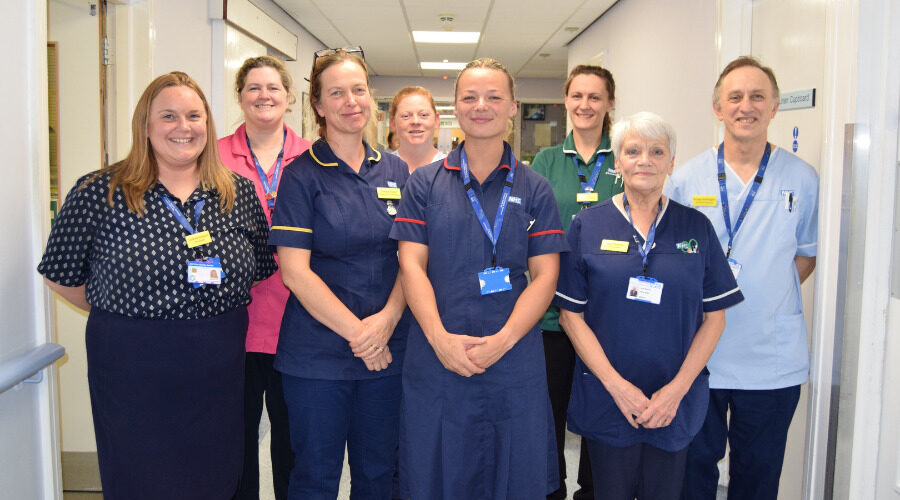
Spotlight
Our community hospitals step up a gear to care for patients this winter
The pressure on district general hospitals over the winter tends to be covered extensively in the national media, but our smaller community hospitals also play a vital role in the care of patients at this busy time.
In Somerset we have 13 community hospitals, nine of which currently have inpatient units that care for patients with a variety of different needs – from stroke and general rehabilitation, to short term rehabilitation and palliative and end of life care.
With many more patients tending to need care from the NHS during the winter, colleagues at our community hospitals are used to stepping up a gear, whether that be opening up additional beds, or caring for those with more complex needs.
Chenise Newham, our senior ward sister at Wincanton Hospital, explains: “Most of our community hospitals tend to increase the number of inpatient beds over the winter months, although we’ve delayed this at Wincanton for the time being due to maintenance work in the ward area.
“It does mean we need additional colleagues on shift at those hospitals who’ve increased their bed numbers, and of course there’s that extra focus on helping patients to safely leave hospital, which we do by carefully planning their discharge.
“In fact, we already start thinking about a patient’s discharge from hospital as soon as they’re admitted, alongside their overall experience.
“We tend to take patients from YDH, MPH and also Royal United Hospital Bath – we know that our district general hospitals are under pressure so we will do anything we can to help.
“Because of the pressure on the acute hospitals, we now accept patients much earlier in their rehab journey, and this impacts their length of stay within community hospitals of course.
“Our average length of stay for patients is 23 days, which is similar at most of our community hospitals. We try to get our patients home as soon as possible, but this does need to be in a safe way, so they’re less likely to be readmitted to hospital.
“It could also be that patients may get discharged to their own home or a care home with a package of care, or they may be able to leave hospital under the trust’s Hospital@Home service.”
Wincanton Hospital now has a doctor based at the hospital, as well as a new assistant clinical practitioner role – both work at the hospital from Monday to Friday, between 9am and 5pm.
Chenise continues: “This is a really positive development as it means we’re much less likely to need to send our patients back to the district general hospital if they’re unwell, as they can be reviewed in the community hospital.
“Community hospitals have always been nurse-led, but having a doctor and advanced nurse practitioner on site means decisions around patients leaving hospital can be taken by a wider multi-disciplinary team, which includes our nurses, therapists, and often social care and village agents.
“Overall, I’m really proud of the work done by my colleagues at Wincanton hospital, and those across all of Somerset’s community hospitals, for the tireless work they do to care for our patients.”
